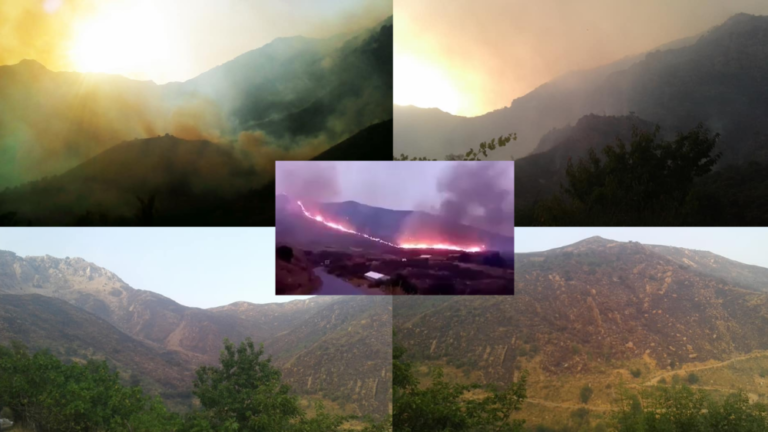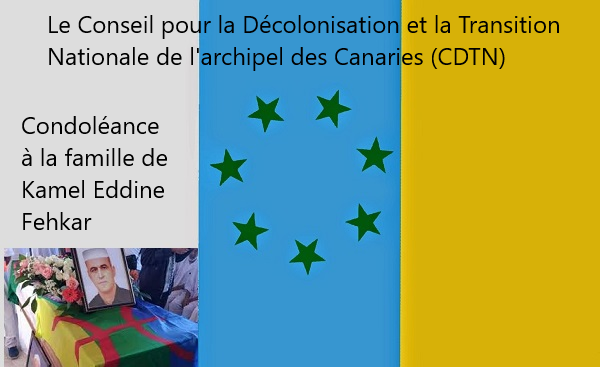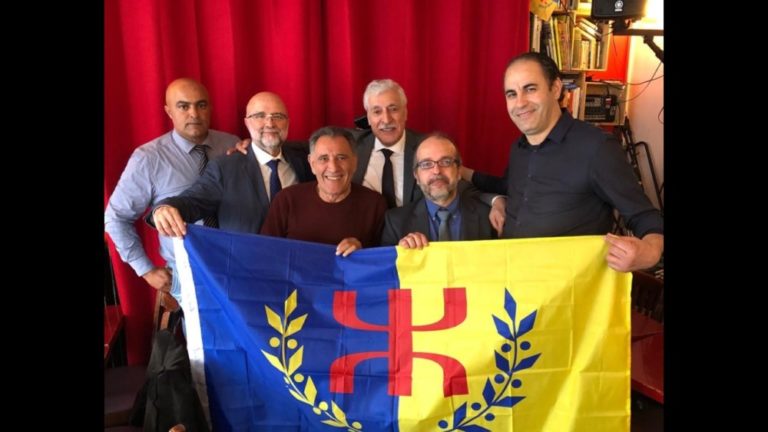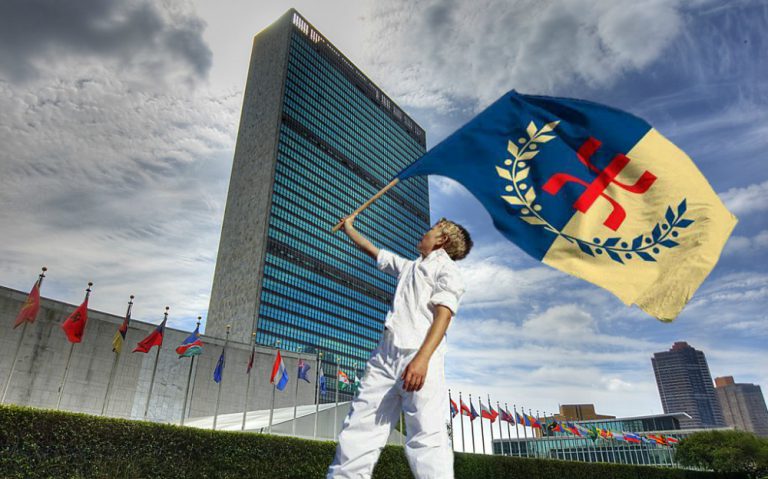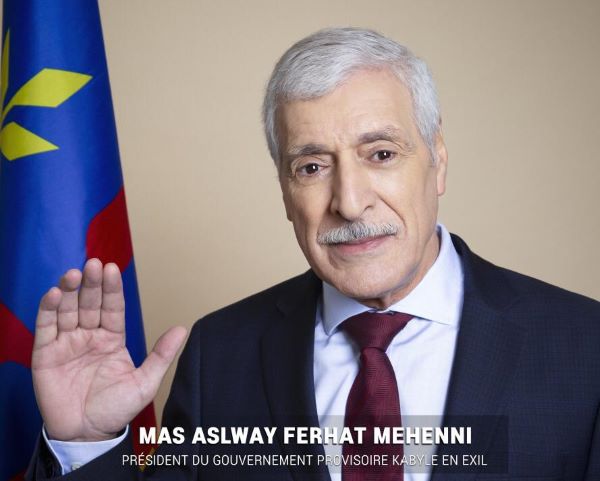Berbers March For Independence In Algeria (traduit en français par Dahmane At Ali)
(SIWEL) — A statement from leaders of the Kabylia Self-Determination Movement (MAK) said, « With this new constitution, they are planning to say that Tamazight, the language of North Africans, is an official language but Arabic is even more official. It represents an insult to the Amazigh native people … They are constitutionalizing racism. »
The march marked the Amazigh new year celebration, Yennayer, and was called before the constitutional changes were announced. Protesters rejected the proposed changes to the official status of the Berber language, Tamazight. The constitutional reform — in addition to limiting presidents to two terms, a concession to pro-democracy advocates — makes Tamazight an "official language." This upgrades its current status as a "national language," instated in 2002 following a wave of Berber protests the previous year. The new protesters consider the change inadequate, and also reject constitutional provisions that only Arabic-speaking Muslims can be elected to public office. The Berber movement is now pressing for actual independence from Algeria.
Marches were also held in other towns across Kabylia, and 40 protesters were arrested in connection with the mobilization, although no violence was reported.
A statement from leaders of the Kabylia Self-Determination Movement (MAK) said, "With this new constitution, they are planning to say that Tamazight, the language of North Africans, is an official language but Arabic is even more official. It represents an insult to the Amazigh native people … They are constitutionalizing racism."
MAK’s New York coordinator Mansour Bensahnoune Ulhady told this reporter that "by putting Tamazight in a secondary paragraph in the so-called constitution, the Arab regime of Algeria really showed its colonial nature." Ulhady said that "this Yennayer march clearly gave the Kabylian independence movement a great mandate in pursuing the fight for independent and free Kabylia, and for establishing a strong democratic and secular state that will serve as an example and model for all North Africa and all the oppressed peoples of the world."
BILL WEINBERG in SlantNews
Traduction du texte en anglais, par Dahmane At Ali
Des milliers de personnes du peuple kabyle (amazigh) ont défilé ce 12 janvier à Tizi Ouzou, la ville centrale de la région de Kabylie en Algérie, pour faire valoir leur droit à l’autodétermination et à s’opposer aux changements constitutionnels proposés plus tôt ce mois par le gouvernement central.
La Marche, dont l’appel avait été lancé avant que les changements constitutionnels ne soient annoncés, a marqué la célébration du nouvel an amazigh, Yennayer. Les manifestants ont rejeté les modifications proposées au statut officiel de la langue berbère, le tamazight. La réforme constitutionnelle – en plus de la limitation à deux mandats aux présidents élus, une concession faite aux défenseurs de la démocratie – fait tamazight «langue officielle». Ceci rehausse son statut actuel comme une «langue nationale», instauré en 2002, suite à une vague de protestations amazighes, l’année précédente (2001, NDT).
Ces nouveaux manifestants considèrent le changement insuffisant, et rejettent aussi les dispositions constitutionnelles qui stipulent que seuls les arabophones musulmans peuvent être élus à des fonctions publiques. Ce mouvement berbère exerce désormais des pressions pour son indépendance réelle de l’Algérie.
Des marches similaires ont également eu lieu dans d’autres villes à travers la Kabylie, et 40 manifestants ont été arrêtés dans le cadre de la mobilisation, même si aucune violence n’a été signalée.
Une déclaration des dirigeants du Mouvement pour l’Autodétermination de la Kabylie (MAK) souligne : « Avec cette nouvelle constitution, ils ont l’intention de dire que le tamazight, la langue autochtone des Nord-Africains, est une langue officielle, mais l’arabe est encore plus officielle. Ceci représente un insulte pour les peuples autochtones amazighs … Ils ont institutionnalisé le racisme. »
Le coordinateur du MAK à New York, Mansour Bensahnoune Ulhadi, a déclaré à notre journaliste que « en mettant tamazight dans un paragraphe secondaire dans la soi-disant constitution, le régime arabe de l’Algérie a vraiment montré sa nature coloniale. » Ulhadi a ajouté que « cette marche de Yennayer a clairement donné au Mouvement Indépendantiste Kabyle un mandat de grande audience dans la poursuite de sa lutte pour la Kabylie libre et indépendante, et pour établir un Etat démocratique et laïque fort qui va servir d’exemple et de modèle pour toute l’Afrique du Nord et tous les peuples opprimés du monde ».
Par : Bill Weinberg
Traduction de l’anglais : Dahmane At Ali.


